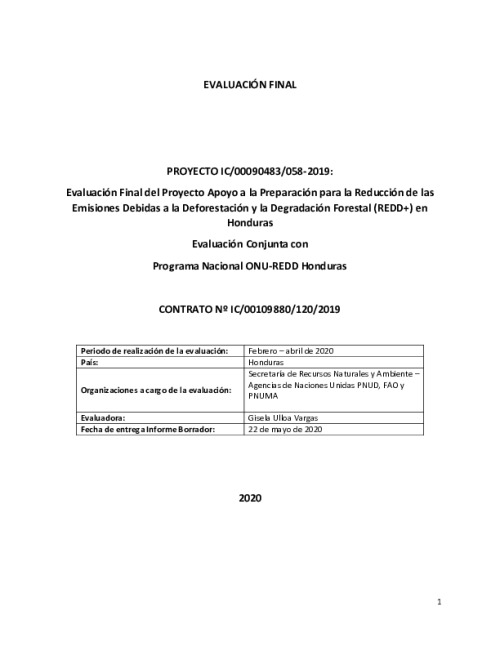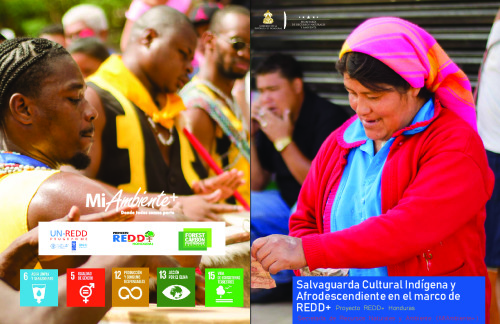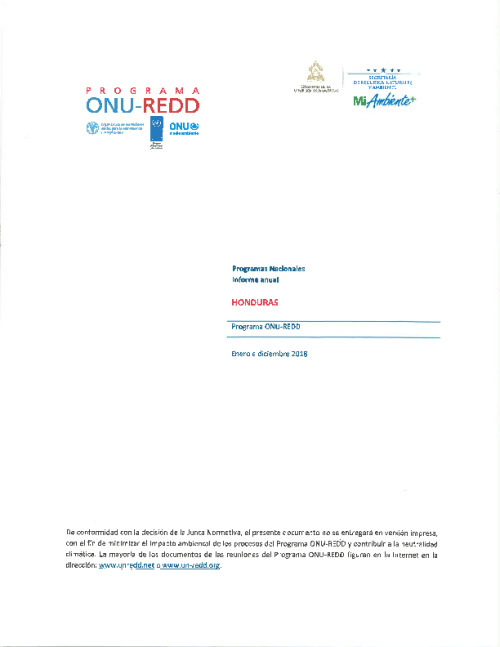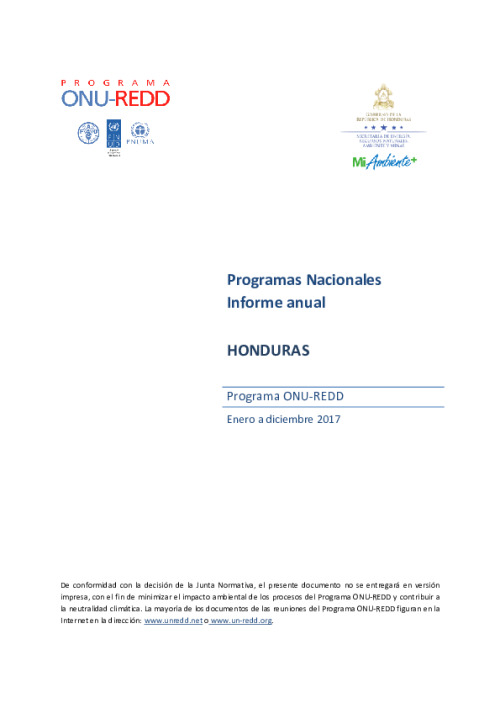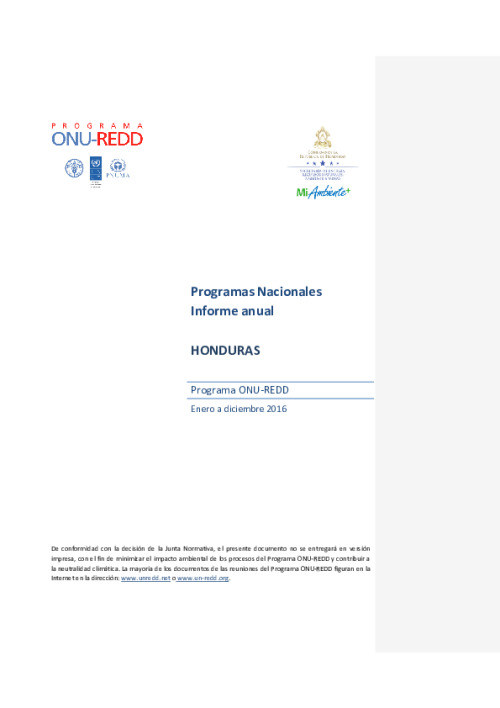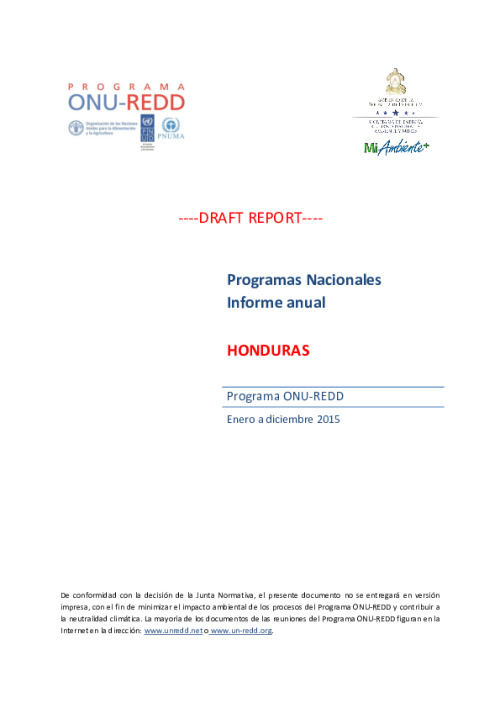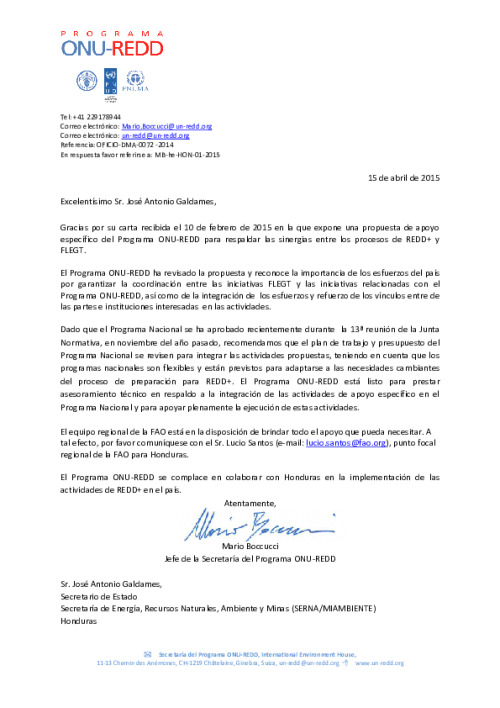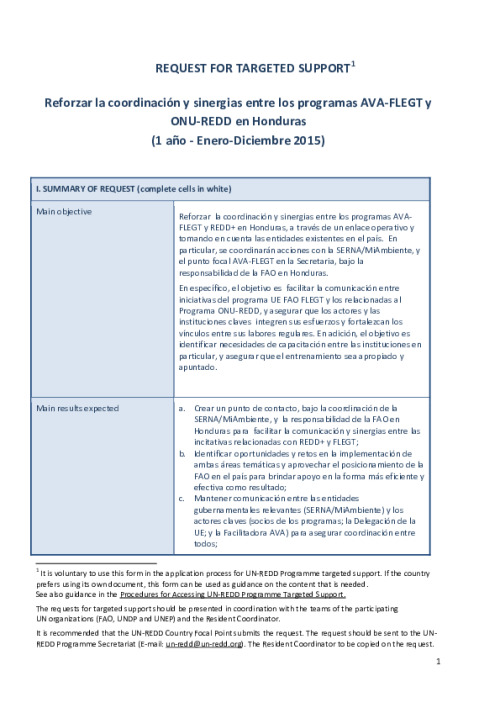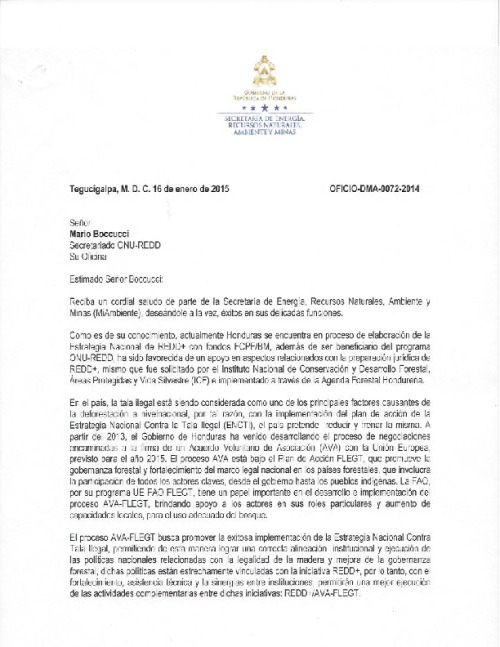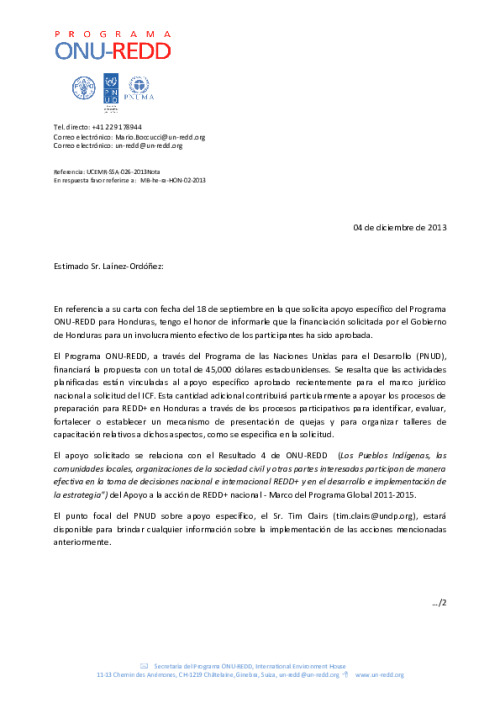National REDD+ Strategy/Action Plan (NS/AP): In 2018, Honduras completed analysis on the drivers of deforestation and forest degradation and on land tenure. In addition, the National Programme for Recovering Degraded Ecosystem Goods and Services was finalized as part of the National REDD+ Strategy. The programme, formalized by decree and approved under Ministerial Agreement 1030-2018, was officially published in La Gaceta in June 2018. Honduras took significant steps towards assessing the potential non-carbon benefits of REDD+ implementation. A preliminary report maps the areas offering greater potential for non-carbon benefits as well as areas that may be more vulnerable to the main deforestation and forest degradation drivers in the country.
Forest Reference Emissions Level (FREL): To improve FREL estimates, progress has been made in clarifying the definitions for the remaining four REDD+ activities (forest degradation, sustainable forest management, enhancement and conservation of forest carbon stocks) in coordination with the technical team of the National Institute of Forest Conservation and Development, Protected Areas and Wildlife (ICF). Tests have been carried out to estimate activity data, by integrating spatial information with the NFI’s field data in the Google Earth Engine platform to further reach a methodological consensus.
National Forest Monitoring Systems (NFMS): The ICF signed a ministerial agreement to institutionalize the NFMS, making it the official reporting platform for generating data for informed decision-making in the forestry sector. An improvement plan developed for ICF officials for the management, administration and use of the NFMS platform will be implemented in 2019.
Safeguard Information System (SIS): Honduras made important advances towards meeting UNFCCC requirements on safeguards, including the development of an initial proposal for SIS design, as well as a draft summary of safeguards information. An additional safeguard, ‘the Cultural Safeguard’, was developed through a participatory process. The National Committee for Environmental and Social Safeguards of Honduras (CONASASH) has also been established.
Although Honduras is not receiving UN-REDD technical assistance for REDD+ implementation, through its National REDD+ Strategy (supported by the FCPF), the country is developing an implementation plan and a financial strategy to fund REDD+ implementation through the GCF or another financial entity. Moreover, the REDD+ national team actively participated in the negotiation process that concluded with the Voluntary Partnership Agreement (VPA)-FLEGT between Honduras and the European Union, to obtain support for good governance in the forest sector. To comply with the commitments, an inter-institutional memorandum of understanding was signed between MiAmbiente and the ICF to strengthen cooperation for the implementation of the VPA-FLEGT and REDD+.
There were substantial changes in both the technical and coordination teams due to the political crisis in 2017; however, a successful transition was achieved thanks to the documentation and systematization of the project. Concerns from groups representing indigenous peoples and Afro-Honduran peoples have been addressed through a series of dialogues, meetings and training sessions to learn about and participate in the project’s actions.
The UN-REDD national programme is implemented in coordination with the FCPF project, where UNDP acts as the delivery partner. Synergies have been established between the results and products of both projects in order to ensure complementary efforts and to strengthen actions.
